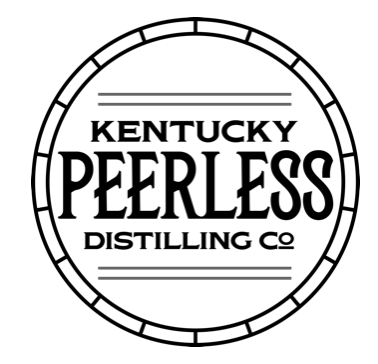Henry Kraver
Henry Kraver was born in 1859 in Poland. He and his family emigrated to the United States in 1863, settling in the Manhattan borough of New York City. Even as a small child, Henry was industrious and began selling newspapers on the corner when he was merely 7 years old to help support his family.
At the age of 19, Kraver decided to leave his family in New York and travel by riverboat until he ran out of money, and, he reckoned, that is where he would start his new life. Henderson, Kentucky, is where his funds were finally depleted, so he exited the boat. No one knows why he didn’t get off in Louisville, since it was a much bigger city than Henderson, providing many more opportunities, and is 6 days upriver as well. Nevertheless, having no money and knowing no one in the area, Henry boldly walked up to the door of a bar called Pucketts and asked the owner for a job sweeping floors in exchange for living in the attic above the bar. The owner agreed, and Henry Kraver got his start as a Kentuckian—fast forward a few years later and the industrious and hardworking Henry Kraver had purchased Pucketts himself!
Back in New York, Henry’s family had acquaintances who were involved in the banking industry, so a banker was what Henry had always aspired to become. Soon, Henry became good friends with a prominent family in Henderson who had learned of his aspirations in the banking industry. They saw the potential in Henry and sent him off to be trained by a bank in St. Louis that had good connections in the banking world. Henry spent 5 years in St. Louis before returning to Kentucky. Upon his return, at the age of 32, Kraver founded the First National Bank of Henderson. He was thereafter the President of the bank for the rest of his life.
Ever industrious and yearning to branch out his business empire, Henry soon bought the Worsham distillery, a small local operation in need of leadership and expansion. Henry then purchased 19 acres of land and founded Kentucky Peerless on the Worsham site. It soon became one of the largest producing distilleries in the state of Kentucky. By 1900, production of Peerless Whiskey had risen from eight barrels to over two hundred barrels a day. Kraver also established a large wholesale house, from which he claimed to be supplying 42 of the 50 saloons in Henderson with liquor. Most of his distribution was done using his own riverboat, and with it he distributed Peerless as far as Cincinnati, OH, and Owensboro, KY. Kraver also opened the Henderson Brewing Company, which was soon one of the largest breweries east of the Mississippi.
Henry Kraver saw that the growing prohibition movement was gaining momentum, so, trying to capitalize on what otherwise would be a disaster for his business, he closed the distillery in 1917, a full two years before Prohibition was enacted. He became partners with the Walgreen brothers from Chicago, who bought 40,000 barrels of his inventory in anticipation of Prohibition. Later in 1917, Kraver sold all his stills to United Distillery in Vancouver, British Columbia. He hired a young man named Elmore Sherman, whom he considered to be the best coppersmith in the area, to dismantle the stills in Henderson and then take them to Vancouver to be reassembled. Elmore Sherman later became well-known as the founder of Vendome Copper and Brass Works. Henry Kraver’s business ventures weren’t all related to alcohol. He also owned the world-famous Palmer House Hotel in Chicago.
Henry Kraver was married to his wife, Ida, until she passed away in 1935. Later in that year, Henry was on a visit to Chicago when he fell from the second-story balcony of his beloved Palmer House Hotel, badly injuring one leg, which ultimately required amputation. Henry died three months later at the age of 78 and was buried alongside his wife in his adopted hometown of Henderson, Kentucky. Henry and Ida had two children, Alfred and Helen. Helen became the mother of the Taylor family, who have ultimately revived the Peerless brand some 80 years later.
Contributed By: Paul Eggerding, Chicago, Illinois





